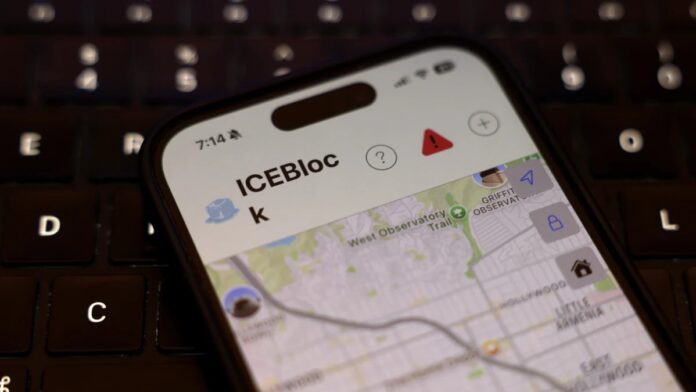Apple has taken down several apps designed to track the movement of Immigration and Customs Enforcement (ICE) officers, following reported pressure from the Trump administration. These apps, such as ICEBlock, were created and utilized by communities seeking to crowdsource information about potential ICE raids, allowing residents to better protect themselves.
The Reasoning Behind the Removal
Apple’s official statement cites concerns regarding the safety of federal officials as the reason for the removal. The company claims it acted on information provided by law enforcement regarding the safety risks associated with apps like ICEBlock. However, reports suggest that behind the scenes, Apple faced significant pressure from the Trump administration to take action against these types of applications.
The Rise of ICE Tracking Apps and Counter-Apps
The popularity of ICEBlock surged earlier this year, becoming the most downloaded app in the app store during a period of national protests concerning the deployment of ICE officers across U.S. cities. ICEBlock, along with similar applications, relies on anonymous geolocation reports without storing personal data that could be traced back to individuals. This approach allows users to share information about potential ICE activity without compromising their own privacy.
In response to the emergence of ICE tracking apps, counter-applications also appeared. One example, ICERaid, offers blockchain-based rewards for individuals who “capture, upload, and validate photographic evidence” of criminal activity allegedly committed by undocumented people. Further, it advertises monetary incentives for undocumented individuals to self-report their status through the CBP Home app, a recent overhaul of which was overseen by the Trump administration.
Legal and Constitutional Challenges
The removal of ICE tracking apps has drawn criticism and legal challenges. Attorney General Pam Bondi asserted that ICEBlock “puts ICE agents at risk just for doing their jobs,” further suggesting violence against law enforcement is “an intolerable red line.” Bondi previously threatened legal action against ICEBlock’s creator, arguing that his actions are not constitutionally protected. Homeland Security Secretary Kristi Noem also threatened to prosecute news publications that reported on the app’s popularity.
Joshua Aaron, the developer of ICEBlock, responded to the takedown by calling Apple’s actions an attack on free speech and accused the company of capitulating to government pressure. Aaron argued that ICEBlock functions similarly to crowdsourced speed trap reporting, a feature commonly found in mapping applications, including Apple’s own Maps app. He emphasized that such activity is protected under the First Amendment of the United States Constitution.
In essence, the removal of ICE tracking apps highlights a complex intersection of public safety concerns, technological innovation, and constitutional rights.
The situation raises important questions about the limits of free speech in the digital age and the role of technology companies in navigating politically sensitive issues. It also underscores the challenges of balancing the government’s need to protect its officials with the community’s right to organize and protect themselves against potential harm.





























![[Огляд] Xiaomi MiJia M365 – відмінний [електросамокат] від надійного китайського виробника](https://web-city.org.ua/wp-content/uploads/2018/01/P1160682_1-218x150.jpg)













![[DNS probe finished no Internet] Як виправити помилку?](https://web-city.org.ua/wp-content/uploads/2018/01/1-42-218x150.jpg)



























